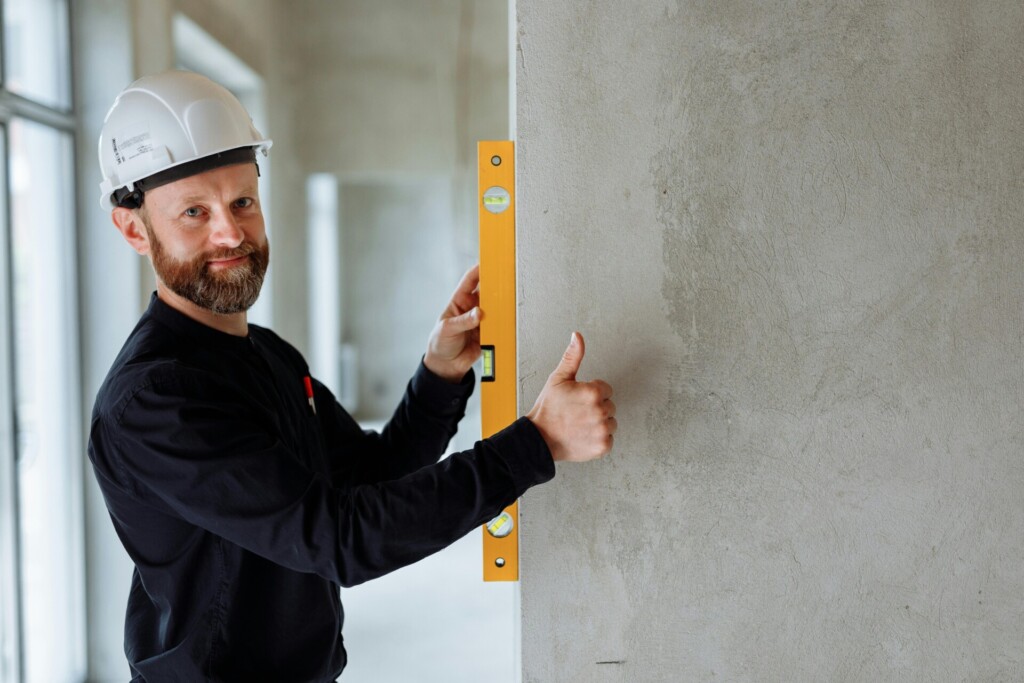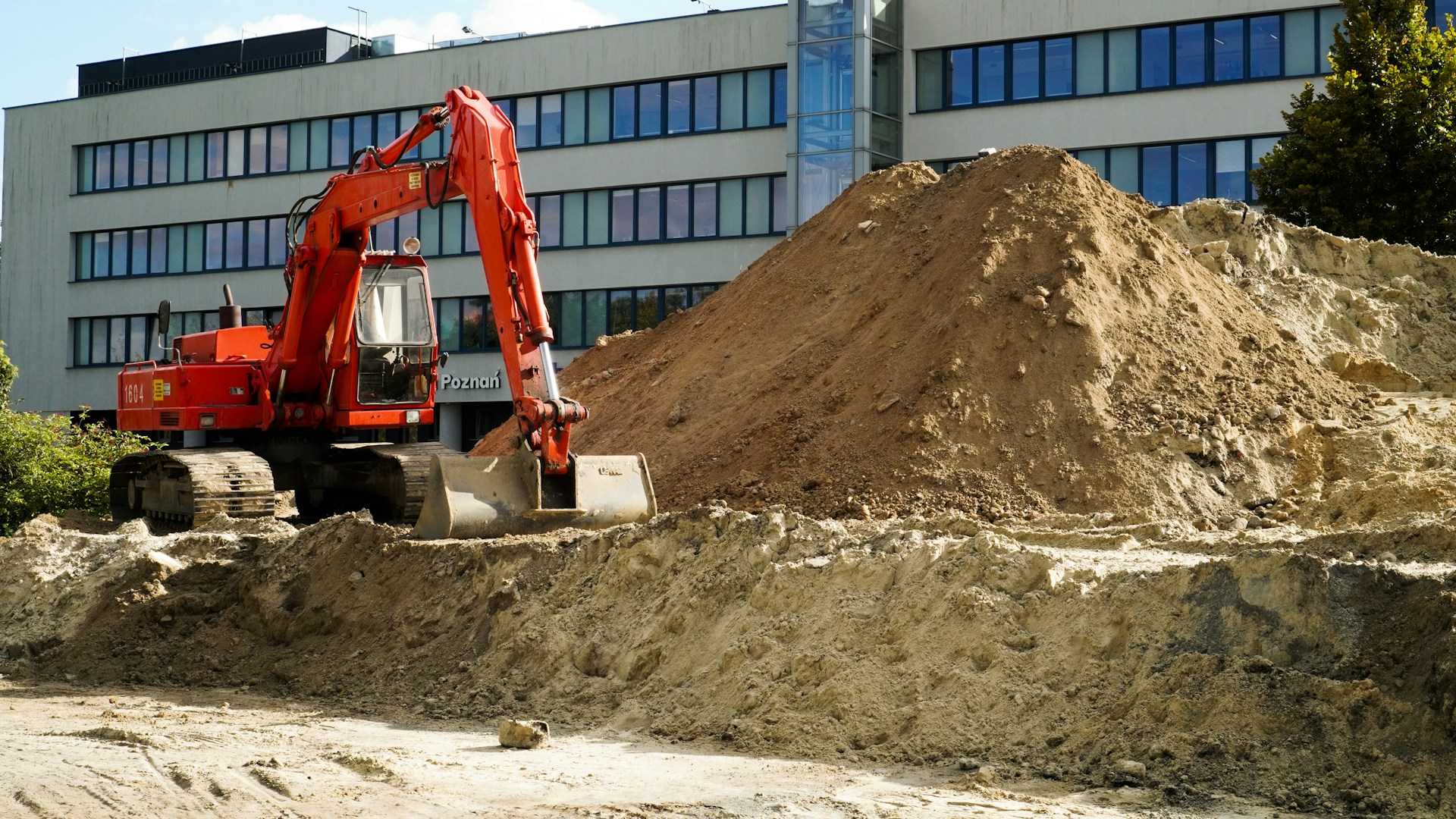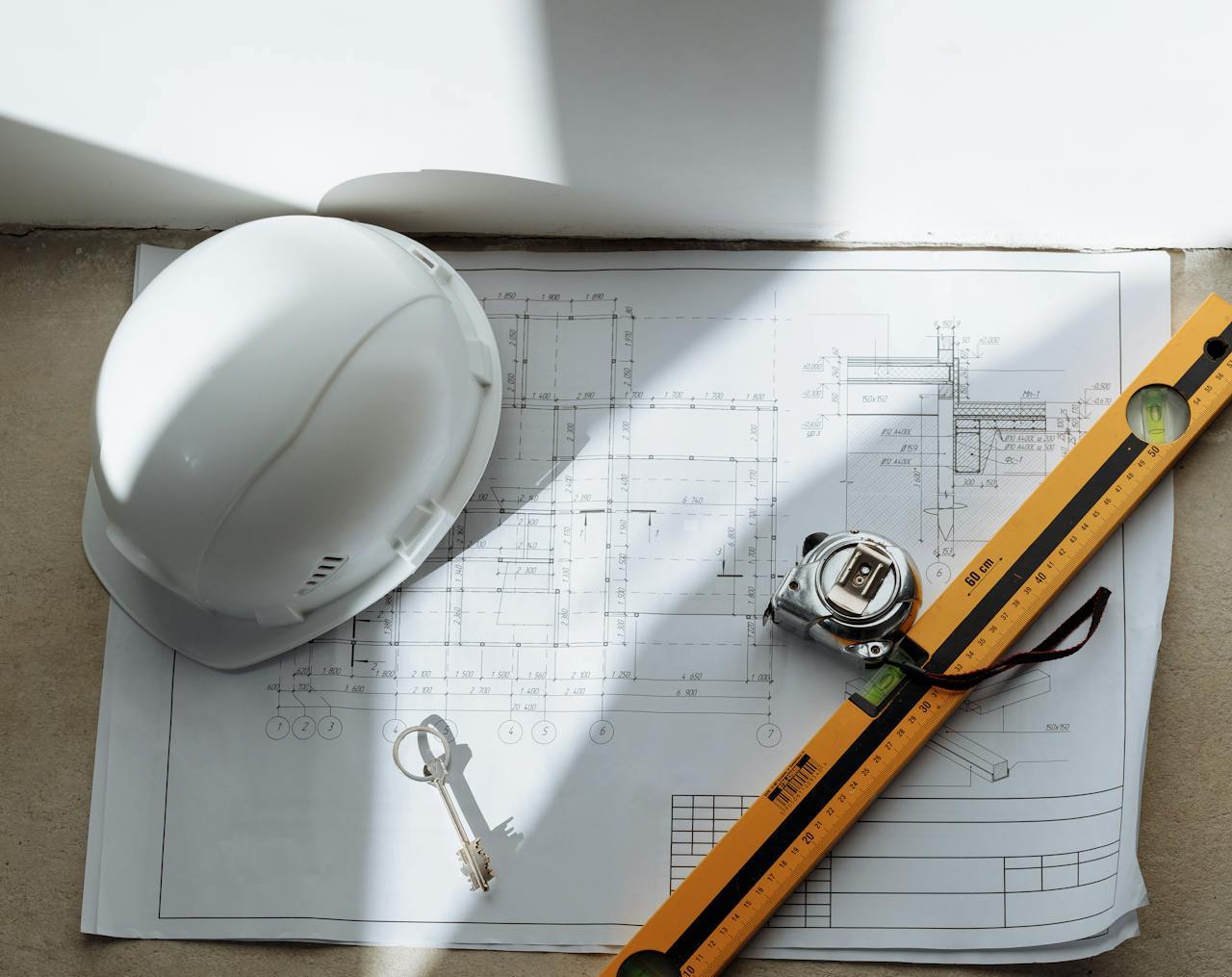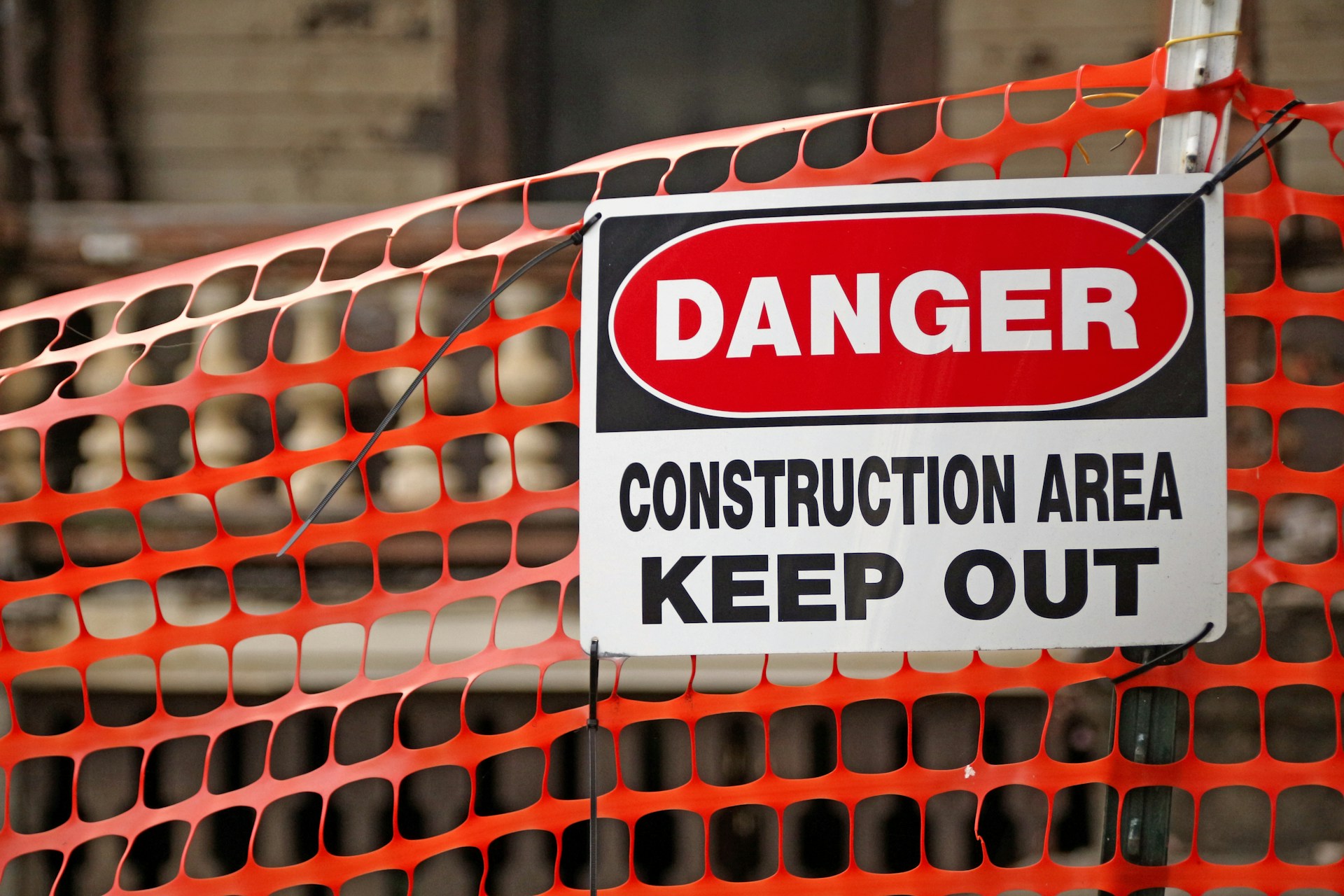Every developer’s nightmare is a construction project spiraling out of control. Cost overruns, missed deadlines, and shoddy workmanship can turn a promising venture into a financial sinkhole. The key to avoiding this scenario is selecting the right commercial contractor from the start.
We’ve all heard horror stories of half-finished buildings and legal battles with unreliable contractors. But it doesn’t have to be that way. By learning to spot warning signs early, you can sidestep potential disasters and set your project up for success.
This guide will equip you with the knowledge to identify critical red flags when evaluating commercial contractors. We’ll show you how to look beyond sales pitches and promises, focusing on concrete indicators of a contractor’s reliability and capability. Time is crucial in construction, and the sooner you can weed out problematic contractors, the better.
Remember, the choice you make today will impact your project for months or even years to come. Let’s ensure you have the tools to make that choice wisely. Your investment and peace of mind depend on it.
Why Should You Watch Out for Suspiciously Low Bids?

A significantly low bid compared to other contractors is a major red flag that we always caution clients about. While budget-conscious decisions are smart, unrealistically low offers often indicate deeper issues that can end up costing far more in the long run.
In our experience managing construction projects, we have found suspiciously low bids usually mean something important is missing from the scope of work. This could include:
- Using lower quality materials that won’t stand the test of time
- Hiring inexperienced or unqualified labor to cut costs
- Skipping necessary permits or inspections
- Underestimating the complexity or time required
- Planning to make up costs later through change orders
Established contractors like EB3 build trust through fair, competitive pricing that reflects real project costs. We carefully assess each job’s requirements and provide transparent bids accounting for quality materials, skilled labor, proper permitting, and realistic timelines.
Remember, what seems like a good deal upfront can quickly become a nightmare of delays, subpar work, and unexpected expenses. We’ve seen projects where owners had to essentially pay twice—once for the low bid contractor who couldn’t deliver, and again to fix the resulting issues.
While it’s tempting to opt for the lowest number, we encourage clients to look at the full picture. Compare bids closely, ask detailed questions about what’s included, and consider the contractor’s track record and reputation. Investing in quality work from the start protects your project and your bottom line in the long term.
How Do Licensing, Insurance, and Safety Credentials Matter?
At EB3 Construction, we understand that proper licensing, insurance, and safety credentials are crucial for any reputable commercial contractor. These qualifications offer more than just procedural compliance – they provide essential protection for our clients and demonstrate our commitment to professionalism.
Licensing confirms we have the required skills and knowledge to perform work safely and in accordance with regulations. We maintain all necessary state and local licenses, often involving ongoing education and testing, which assures our clients that we’re equipped to manage their projects.
Comprehensive insurance coverage is equally vital. We carry robust general liability and worker’s compensation policies to protect both our company and our clients. In the unlikely event of an accident or property damage, our insurance ensures you won’t face financial liability. We’re happy to provide current certificates of insurance for every project.
Safety is always our top priority, which is why we heavily invest in safety training and certifications for our team. From OSHA compliance to trade-specific safety protocols, we strive to foster a culture of safety on every jobsite. This commitment protects our workers, our clients, and the integrity of each project.
Hiring an unlicensed or uninsured contractor might seem economical initially, but it exposes you to significant risk. Without proper credentials, you might encounter:
- Costly lawsuits if a worker is injured on your property
- Fines for violating local building codes or regulations
- Delays and costs to rectify subpar work that doesn’t meet standards
- Loss of property value if renovations aren’t up to code
We’ve witnessed the consequences firsthand. On a recent project, the owner had previously hired an unlicensed contractor for electrical work. Upon starting the job, we discovered multiple code violations that posed serious fire hazards. The owner had to spend thousands to bring everything up to code before we could proceed.
Therefore, we recommend always verifying a contractor’s credentials before signing any agreements. Look for:
- A valid contractor’s license number
- Current certificates of insurance for liability and worker’s comp
- Safety certifications and protocols
- Membership in professional associations
- References from past commercial clients
At EB3, we’re proud of our qualifications and happy to provide documentation. Our licensing, insurance, and safety credentials aren’t just formalities – they’re a fundamental part of how we deliver outstanding results while protecting our clients. We firmly believe in conducting every project with transparency and professionalism.
| Verify Licensing | Check with local authorities for a valid contractor’s license. |
| Confirm Insurance | Request Certificate of Insurance (COI) covering liability and workers’ compensation. |
| Review Safety Compliance | Ensure completion of required safety training programs (e.g., OSHA, first aid). |
| Check References and Reviews | Consult past client references and online reviews to assess reliability and work quality. |
What Does Poor Communication Tell You About a Contractor?

As a general contractor, we understand that effective communication is the cornerstone of any successful commercial construction project. When evaluating potential contractors, their communication practices can reveal a lot about their operational style. We’ve observed how poor communication from contractors often correlates with significant issues down the line.
Key warning signs include consistently delayed responses to emails or calls, failure to provide a detailed written project schedule, vague or incomplete information about project specifics, and evasive answers during the planning phase. If a contractor cannot clearly explain timelines, costs, or deliverables, it is a strong indicator of potential major complications once construction begins.
In our experience coordinating complex projects, contractors who are reluctant to provide thorough information in writing are often trying to avoid creating a paper trail. This can sometimes imply they aren’t properly licensed or insured to perform the requested work. Reputable contractors should readily document project details and commitments.
We take a proactive approach to communication on all our projects, maintaining open dialogue with clients, subcontractors, and other stakeholders from day one. This includes providing comprehensive written documentation, promptly responding to inquiries, and clearly articulating all aspects of the construction process. When contractors fall short in these areas, it often signals deeper organizational or competency issues that can derail projects.
Ultimately, a contractor’s communication practices offer valuable insight into their overall professionalism, attention to detail, and ability to execute complex commercial construction projects successfully. By carefully evaluating these factors during the selection process, developers and property owners can avoid many common pitfalls and set their projects up for success.
| Examples of Poor Communication | Potential Consequences |
|---|---|
| Delayed responses to emails or calls | Project delays |
| Failure to provide a detailed project schedule | Misalignment and confusion |
| Vague or incomplete information about project specifics | Increased project risks |
| Evasive answers during the planning phase | Potential for higher costs |
| Reluctance to provide written documentation | Legal and financial complications |
Why Are References and Portfolio Critical for Evaluation?
When evaluating commercial contractors, references and portfolio samples provide essential insights that go beyond what’s stated in proposals or marketing materials. These elements are critical tools for verifying a contractor’s capabilities, work quality, and reliability.
A robust portfolio showcases a contractor’s range of completed projects, offering tangible evidence of their expertise and style. We recommend examining portfolios closely to assess whether they have relevant experience with projects similar to yours in scope, complexity, and industry. Pay attention to the quality of finishes, innovative design solutions, and how well the completed spaces align with each client’s vision.
References offer invaluable firsthand accounts of what it’s like to work with a contractor throughout a project’s lifecycle. When checking references, ask targeted questions about communication, problem-solving, adherence to timelines and budgets, and overall satisfaction with the end result. Look for patterns in the feedback—consistently positive remarks across multiple references are a strong indicator of reliability.
Be wary of contractors who are reluctant to provide references or showcase their past work. This hesitancy could signal a lack of experience, confidence issues, or potential problems with previous clients. Similarly, an absence of online reviews or a pattern of poor feedback should raise red flags during your evaluation process.
Reputable contractors typically share their successes eagerly and connect you with satisfied clients. They understand that a strong track record is one of their most powerful selling points. If a contractor can’t readily produce examples of successful projects or happy client testimonials, it’s worth investigating further to understand why.
Remember, past performance is often the best predictor of future results. By thoroughly vetting references and portfolios, we can gain crucial insights into a contractor’s real-world capabilities, helping ensure we select a partner who can deliver on their promises and bring our construction vision to life.
| Question | Purpose |
| Did the contractor meet or exceed your expectations? | Evaluate overall satisfaction and reliability. |
| Did the contractor complete the project within the agreed timeframe? | Assess punctuality and planning skills. |
| Did the final cost align with the initial quote provided? | Check pricing transparency and reliability. |
| Was the contractor easy to communicate with throughout the project? | Gauge communication effectiveness. |
| Would you hire this contractor again? | Determine satisfaction and potential re-engagement. |
| Did the contractor provide a detailed estimate upfront? | Verify financial clarity and detail orientation. |
| Was the job site kept clean and safe during the project? | Assess professionalism and respect for property. |
Ultimately, references and portfolios are vital tools for mitigating risk in the contractor selection process. They allow us to move beyond marketing claims and get a clearer picture of what we can expect when working with a particular contractor. This due diligence upfront can save significant headaches down the road, ensuring smoother project execution and a higher likelihood of achieving our desired outcomes.
Conclusion: Protecting Your Investment from Unscrupulous Contractors

In commercial construction projects, carefully selecting a contractor is essential. We’ve identified key red flags that help safeguard your investment and foster project success. By staying alert to warning signs like unrealistically low bids, a lack of proper licensing or insurance, poor communication, and an absence of verifiable references, you can make informed decisions.
Experience has shown that trusting your instincts when something feels off is often wise. However, these gut feelings should be supported by thorough due diligence. Always insist on proper documentation, from detailed contracts to proof of credentials. Paying attention to detail in the vetting process helps avoid potential pitfalls and align with reputable contractors who share a commitment to quality and professionalism.
The aim isn’t just to avoid problems—it’s to find a true partner for your commercial construction endeavor. By applying the insights discussed, you’re well-equipped to navigate the contractor selection process with confidence. With the right professional team in place, your project has a solid foundation for success, turning your vision into a well-executed reality.
Ready to move forward with your commercial construction project? Contact EB3 Construction to discuss how we can bring our expertise to your next build.




